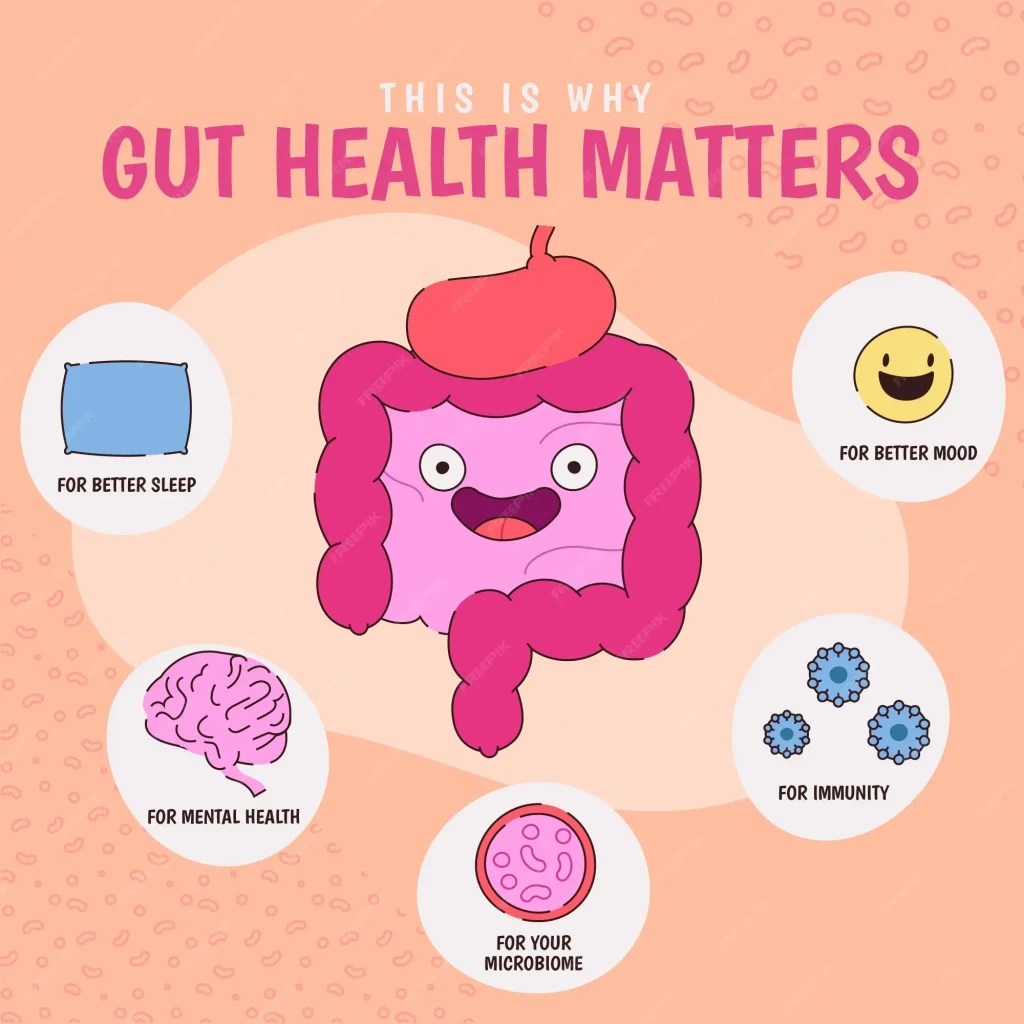Gut health is more than a buzzword; it’s a practical framework for fueling your digestive system and supporting overall well-being. When we talk about gut health, we’re exploring the complex microbiome that lives in your digestive tract and influences digestion, immunity, and even mood. A healthy gut can mean smoother digestion, less bloating, steadier energy, fewer cravings, and a more balanced metabolism overall. To support the gut ecosystem, focus on digestive system health, probiotic foods, prebiotic foods, and fiber-rich foods as core building blocks. Alongside hydration and gentle lifestyle choices, incorporate gut-friendly foods to nourish your microbiome day by day, gradually.
Beyond the commonly used term, many experts describe intestinal wellness, microbiome balance, and digestive ecology to capture the same idea from different angles. This framing emphasizes the gut microbiota—the diverse community of bacteria, fungi, and other microbes—that shapes digestion, immunity, and even mood. By thinking in terms of microbial diversity and gut-friendly habitats, you can plan foods and habits that nourish this internal ecosystem. Practical steps align with the same goal: prioritize fiber-rich foods, probiotic foods, and prebiotic foods to foster a resilient digestive environment.
Gut Health Essentials: How Probiotic Foods and Prebiotics Fuel Your Digestive System Health
Probiotic foods introduce live cultures that replenish your gut’s friendly bacteria, supporting digestive system health and a resilient immune barrier. Regularly including yogurt with live cultures, kefir, sauerkraut, kimchi, miso, or tempeh helps diversify the microbiome and promote smoother digestion. For those who are lactose intolerant or dairy-averse, plant-based options like coconut yogurt or kimchi offer similar benefits. Over time, this daily practice can reduce occasional bloating and support more comfortable digestion.
Prebiotic foods provide fuel for the beneficial microbes that sustain gut health. Garlic, onions, leeks, scallions, asparagus, bananas (slightly green), chicory root, Jerusalem artichokes, and oats feed bacteria that produce short-chain fatty acids essential for colon health. Pairing prebiotics with fiber-rich foods can amplify their impact, helping you feel fuller longer and support regularity. A simple rule: include at least one prebiotic-rich item with most meals to nourish a balanced, gut-friendly microbiome.
Fiber-Rich Foods and Gut-Friendly Diet: A Practical Guide to Regularity
Fiber-rich foods are the cornerstone of digestive comfort and gut balance. Soluble fiber from oats, legumes, and apples forms a gel that slows digestion and supports steady energy, while insoluble fiber from whole grains, vegetables, and bran adds bulk and accelerates stool movement. A varied intake of both types helps feed diverse gut microbes and promotes regularity, contributing to overall gut-friendly foods and digestive system health.
To put it into practice, build a gut-friendly plate: start with fiber-rich foundations like whole grains, vegetables, legumes, and fruit; add probiotic partners such as yogurt or kefir; finish with prebiotic powerhouses like garlic, onions, and leeks. Stay hydrated with water and herbal teas, and aim for a daily mix of gut-friendly foods across meals to support digestion, mood, and energy.
Frequently Asked Questions
What is gut health and how can probiotic foods and prebiotic foods support digestive system health?
Gut health refers to the balance of the microbiome in your digestive tract and its impact on digestion, immunity, and mood. Include probiotic foods (yogurt with live cultures, kefir, sauerkraut, kimchi, miso, tempeh) to introduce beneficial bacteria, and prebiotic foods (garlic, onions, leeks, asparagus, oats, bananas) to nourish them. A fiber-rich diet, adequate hydration, and minimizing highly processed foods further support digestive system health. Start with small portions and gradually increase fiber to ease adaptation.
Which fiber-rich foods and gut-friendly foods should I focus on to support gut health and digestion?
Build a varied plate that emphasizes fiber-rich foods (oats, barley, beans, lentils, whole grains, fruits, vegetables) to support regularity, along with gut-friendly foods (yogurt, kefir, sauerkraut, kimchi) that provide live cultures. Pair these with prebiotic foods (garlic, onions, leeks, chicory, oats) to fuel your microbiome. Stay hydrated and limit processed snacks to maintain digestion and keep the gut microbiome balanced over time.
| Topic | Key Points | Examples/Notes |
|---|---|---|
| Gut Health Overview | Gut health refers to the complex microbiome in the digestive tract that influences digestion, immunity, and mood. A healthy gut can lead to smoother digestion, fewer bloating episodes, more consistent energy, and a steadier metabolism. | Digestive system, microbiome, overall well‑being. |
| Key Principles for a Gut-Healthy Diet | Variety of nutrients; fiber is essential; include both probiotics and prebiotics; stay hydrated; minimize processed and ultra-sugary foods. | Examples: diverse plant foods; high-fiber staples; probiotic foods; water-rich hydration. |
| Probiotic Foods | Contain live cultures that bolster the gut’s beneficial bacteria; can improve digestion and support immune function. Choose products with live active cultures and minimal added sugar; plant-based options are available. | Yogurt with live cultures, kefir, sauerkraut, kimchi, miso, tempeh; dairy‑free options like coconut yogurt. |
| Prebiotic Foods | Non-digestible fibers that feed beneficial gut bacteria, acting as fuel for the microbiome. | Garlic, onions, leeks, scallions, asparagus, bananas (slightly green), chicory root, oats. |
| Fiber-Rich Foods | Dietary fiber supports stool bulk, slows digestion for better nutrient absorption, and fuels gut-friendly short-chain fatty acids. Include both soluble and insoluble fiber. | Oats, barley, chia seeds, flaxseeds, beans, lentils, broccoli, carrots, apples, berries. |
| Fermented & Polyphenol-Rich Foods | Fermented foods introduce beneficial bacteria; polyphenol-rich foods support microbial diversity and can reduce inflammation. Hydration, herbs, and spices can aid digestion. | Sauerkraut, kimchi, kefir, yogurt; berries, dark leafy greens, nuts; ginger, turmeric. |
| Practical Plate Tips | Build meals around fiber foundations; add probiotic partners; season with prebiotic powerhouses; snack on fruit and nuts; stay hydrated; plan meals to avoid long gaps. | Breakfast oats + banana + yogurt; lunch quinoa bowl with vegetables and garlic/onions; snack fruit with nuts; dinner salmon with garlic-leek sauté and sauerkraut. |
| Sample Gut-Healthy Day | Illustrative day plan showing meal structure and gut-friendly choices. | Breakfast: oats with banana, berries, flaxseeds; yogurt; Lunch: quinoa bowl with vegetables and chickpeas; Dinner: grilled salmon with sauerkraut; Hydration throughout the day. |
| Common Gut Health Myths Debunked | Common myths and clarifications about probiotics, fiber, and supplements. | All probiotics are the same; high fiber always causes bloating; supplements replace whole foods; if it hurts, remove fiber. |
| When to Seek Medical Advice | Guidance on red flags and when professional input is advised. | Persistent bloating, severe abdominal pain, unplanned weight loss, blood in stool, or lasting changes in bowel habits—seek evaluation. |
Summary
Conclusion
Gut health is a dynamic, trainable aspect of your well-being. By embracing a balanced plate that blends fiber-rich foods, probiotic and prebiotic options, and fermented favorites, you support a resilient digestive system and a healthy gut microbiome that underpins digestion, immunity, mood, and energy. Start small—swap refined snacks for fruit and nuts, add a prebiotic garlic-leek topping to meals, and include a probiotic yogurt or kefir at breakfast—and let these sustainable changes accumulate over weeks and months. Treat your gut as a long-term partner and nourish it with a colorful, varied plate, ample hydration, and mindful eating for lasting gut health.



